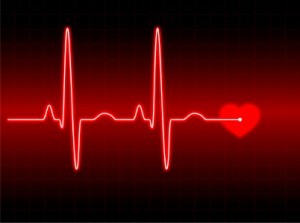 Next to regular exercise, eating a healthy diet, and maintaining a low-stress lifestyle, testosterone replacement therapy might be the best thing you can do for your heart.
Next to regular exercise, eating a healthy diet, and maintaining a low-stress lifestyle, testosterone replacement therapy might be the best thing you can do for your heart.
Sure, that’s a bold claim, but it’s hard to refute the ever-increasing amount of evidence filtering out of the scientific research community. Consider the latest results of a multi-year study that found low testosterone men to be 80% more likely to suffer an adverse cardiovascular event (stroke, heart attack, or death).
Three years ago, researchers at the Intermountain Medical Center Heart Institute in Salt Lake City recruited 755 heart patients between the ages of 58 and 78 who also tested low in testosterone. The men were divided up into three groups, two of which received testosterone replacement therapy in the form of gel or an injectable, and one group that served as the placebo group.
After one year:
- 64 patients who weren’t on testosterone replacement therapy suffered a major cardiovascular event (stroke, heart attack, or death).
- Only 12 patients on medium doses of testosterone experienced a major cardiovascular event.
- And only 9 patients on high doses of testosterone experienced a major cardiovascular event.
In other words, non-testosterone patients were 80% more likely to suffer an adverse event.
The same trends continued 3 years later. One hundred twenty-five of the untreated men experienced stroke, heart attack, or death, as compared to 38 of the medium-dose testosterone replacement patients and only 22 of the high-dose testosterone replacement patients.
Lead researcher, Dr. Brent Muhlstein, said, “The study shows that using testosterone replacement to increase testosterone levels to normal levels in androgen-deficient men doesn’t increase their risk of serious heart attack or stroke. That was the case even in the highest-risk men –- those with pre-existing heart disease.”
Men in the study also experienced an improvement in their mood and depressive symptoms, along with increases in sexual drive, sexual frequency, and the distance they could walk in 6 minutes.
The findings were presented at the American College of Cardiology’s 65th annual scientific session held in Chicago on April 3rd, 2016.





